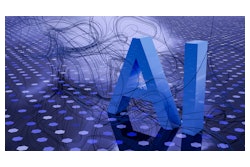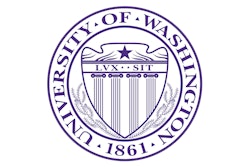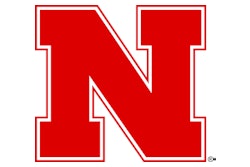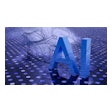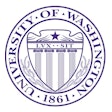Copyright 2018 Virginian-Pilot Companies LLC
All Rights Reserved
The Virginian - Pilot (Norfolk, VA.)
The NCAA is to inertia what Joey Chestnut is to gluttony. From enacting legislation to sanctioning outlaws, college sports' governing body is ponderous to a fault.
So it's hardly shocking that a rare NCAA hot take included some hiccups.
When the FBI rocked college basketball in September with bribery and conspiracy charges against four assistant coaches and six others, NCAA president Mark Emmert vowed rapid response. Soon thereafter, he impaneled a commission, chaired by former Secretary of State Condoleezza Rice, to probe the sport's recruiting underworld and suggest remedies.
The Rice Commission issued its report in late April, and Wednesday the NCAA echoed the report, unveiling fast-track and welcome reforms to assist athletes and overhaul rules enforcement. As for measures to address the sport's recruiting ills, well, the rollout was awkward and raised as many questions as it answered.
Helpful steps include doubling to 10 the maximum number of official, on-campus recruiting visits a prospect may take before high school graduation and required degree-completion assistance for athletes who return to college after completing their eligibility.
Surely these sensible changes can be adopted for all sports and not only men's basketball.
In fact, where the NCAA truly breaks ground is with a new enforcement model that will apply to all infractions cases in all sports. To wit:
Lacking formal subpoena power, the NCAA will require employment contracts compelling all university presidents and athletics staff to cooperate with association investigations and infractions hearings. Individuals can be fired for cause, and their schools can be sanctioned, for failing to cooperate.
Also, the enforcement staff can accept findings from outside entities such as courts, government agencies, accrediting bodies and commissions authorized by the school. Schools also may essentially plea bargain, negotiating sanctions with the NCAA, sparing both the time and expenses of an infractions hearing and possible appeal.
Penalties are more severe, including postseason bans of up to five years and suspensions of coaches for more than one season. Finally, cases the NCAA deems complex such as academic fraud and athlete abuse, or those with potential major sanctions, can be heard by outsiders starting next year.
The 15-member panel, five of whom will address each complex case, will be comprised of people with "legal, higher education and/or sports backgrounds." They will not be affiliated with any NCAA school or conference.
This is all XXL stuff, and while the proof will be in the execution, the concepts are sound. But the enforcement reforms largely were lost amid the basketball measures.
"What you saw on the ticker was agents and draft," Duke coach Mike Krzyzewski said at a news conference Friday, "and it's so much more … than that."
The basketball-specific legislation is where some things get sideways.
Allowing early NBA draft entries who are not chosen to retain college eligibility is long overdue. But why limit it to those who were invited to the NBA's pre-draft camp?
The NCAA allowed, effective immediately, any college basketball player to retain an agent after a season in which the player requests a draft evaluation from the NBA Undergraduate Advisory Committee. If a player wants to resume college competition after withdrawing from the draft, not declaring for the draft or going undrafted, he must terminate the agent relationship.
That relationship, by the way, can include the agent paying only for player and family expenses associated with agent selection and the draft. Good luck enforcing that provision.
"To have an agent and then not have an agent: I don't see how that works," Krzyzewski said.
Delving deeper into the piranha tank that is the agent world: If the NBA and the NBA Players Association agree to abolish their ill-conceived ban on high school seniors declaring for the draft, the NCAA will allow high school players to retain an agent on July 1 prior to their senior year.
The NCAA said USA Basketball, which coordinates our international teams, would identify the elite prospects eligible for agent representation. ESPN's Adrian Wojnarowski reported that USA Basketball was blindsided by the news, prompting the NCAA's Dan Gavitt to tell CBSSports.com's Matt Norlander that communication with USA Basketball had been lacking.
With Adidas recruiting influence central to the FBI's September arrests, the Rice Commission and NCAA were bound to address youth basketball. The spring/summer circuit is rooted in tournaments and leagues bankrolled by Adidas, Nike and Under Armour, and curbing their often-abused power is a worthy pursuit.
After all, as long as the big three apparel companies pay schools fortunes to wear their brand - UCLA's 15-year deal with Under Armour is valued at $280 million in cash and gear - those firms will be motivated to steer prospects to their preferred programs.
So allowing college coaches to evaluate prospects at the NBA Players Association Top 100 Camp in late June - the event has recently been staged at the University of Virginia - and at high school-sanctioned competitions in June is an upgrade. As is the creation of NCAA development camps in late July, a collaboration with USA Basketball, the NBA and players union.
Adidas, Nike and Under Armour still will ply kids with gear and conduct their events, but the NCAA enacted more rigorous certification standards and is demanding greater financial transparency.
"I'm not sure there's a coach who could tell you exactly what the recruiting calendar looks like right now," Krzyzewski said, lamenting the NCAA's rush to act, but lack of coordination.
Indeed, Wednesday's reform package is far from a cure-all. Nor, by the way, would abandonment of amateurism and concession to free market.
Rather, this is a well-intended and flawed first step.
"It's important to be mindful that we won't reach perfection," ACC commissioner John Swofford said in a statement. "However, we can't let that stand in the way of significant progress. I'm sure there will be unintended consequences as we move forward, and we'll need to evaluate and perhaps make adjustments along the way. But these are necessary actions that should enhance the culture within the sport."
Krzyzewski summarized the news well in six words.
"Hopefully," he said, "the good stuff will stick."
Read More of Today's AB Headlines
Subscribe to Our Daily E-Newsletter
Terms and Conditions Privacy Policy













